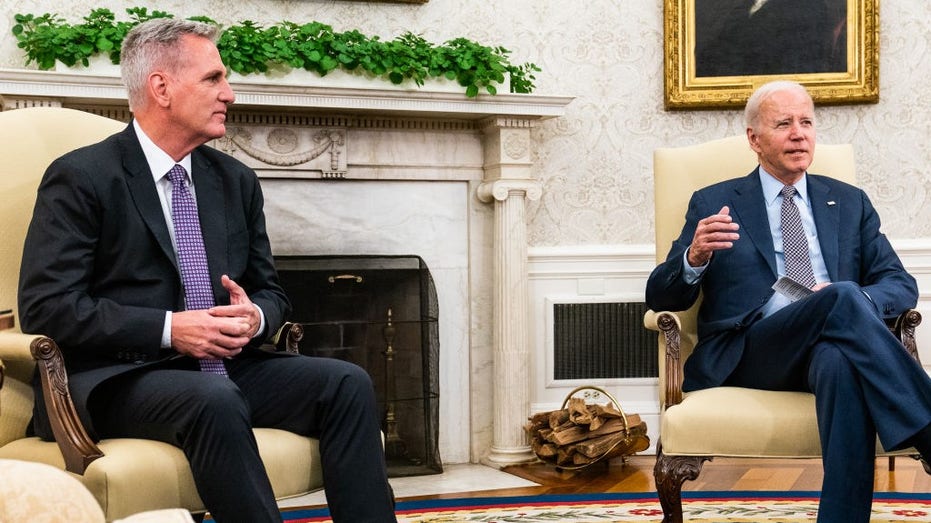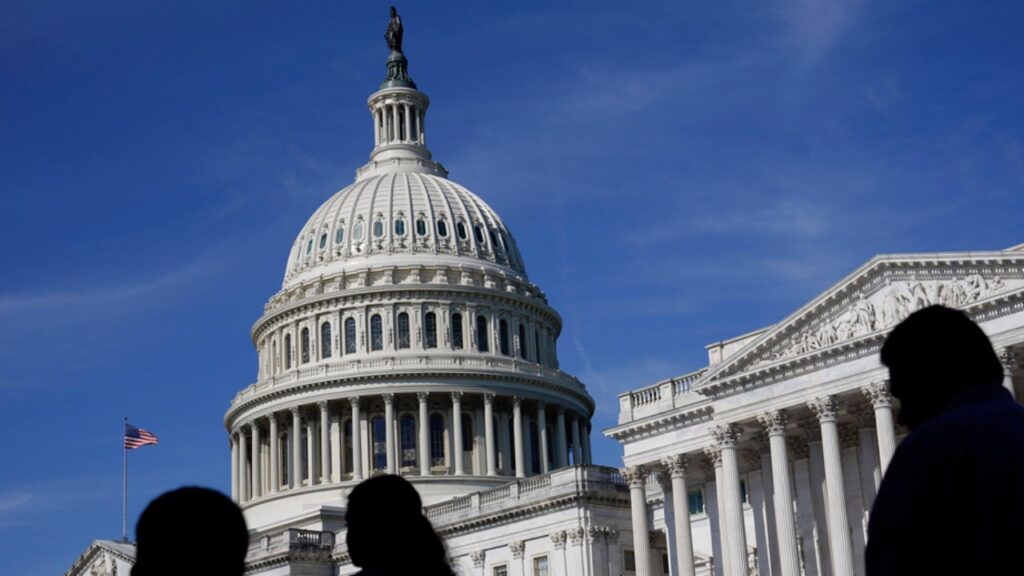Fitch Ratings said Friday it is holding the United States on watch for a possible credit downgrade, even though Congress passed a bipartisan debt ceiling agreement that will ensure the government can pay its bills on time.
The ratings agency said in a statement it would maintain the “Rating Watch Negative” on the U.S. as “we consider the full implications of the most recent brinkmanship episode and the outlook for medium-term fiscal and debt trajectories.”
The warning came shortly after the Senate passed legislation lifting the debt ceiling for two years in exchange for modest spending cuts.
WHAT IS THE DEBT CEILING, AND WHAT DOES IT MEAN FOR YOU
While Fitch lauded the agreement between President Biden and Republican House Speaker Kevin McCarthy as a “positive,” it expressed concerns over the repeated use of the debt limit as a political football.
“Fitch believes that repeated political standoffs around the debt-limit and last-minute suspensions before the X-date (when the Treasury’s cash position and extraordinary measures are exhausted) lowers confidence in governance on fiscal and debt matters,” it said in a statement.
A downgrade could force Washington to pay a steeper interest rate on Treasury bonds, notes and bills.
Fitch said it plans to resolve the negative watch in the third quarter.
BIDEN, MCCARTHY DEBT CEILING DEAL CLAWS BACK $21B IN FUNDING FROM IRS
“The coherence and credibility of policymaking, as well as the expected medium-term fiscal and debt trajectories will be key factors in our assessment,” it said.
Fitch first put the U.S. on a negative rating watch one week ago amid growing fears that Washington negotiators would be unable to reach a compromise to lift the debt limit.

The debt ceiling, which is currently around $31.4 trillion, is the legal limit on the total amount of debt that the federal government can borrow on behalf of the public, including Social Security and Medicare benefits, military salaries and tax refunds.
If the U.S. failed to raise or suspend the debt limit, it would eventually have to temporarily default on some of its obligations, which could have serious negative economic implications. Interest rates would likely spike, and demand for Treasurys would drop; even the threat of default can cause borrowing costs to increase, according to the Committee for a Responsible Federal Budget.
While the U.S. has never defaulted on its debt before, it came close in 2011, when House Republicans refused to pass a debt-ceiling increase, prompting rating agency Standard and Poor’s to downgrade the U.S. debt rating one notch.
The Government Accountability Office previously estimated the 2011 standoff and subsequent downgrade raised the Treasury Department’s borrowing costs by roughly $1.3 billion.
Read the full article here











